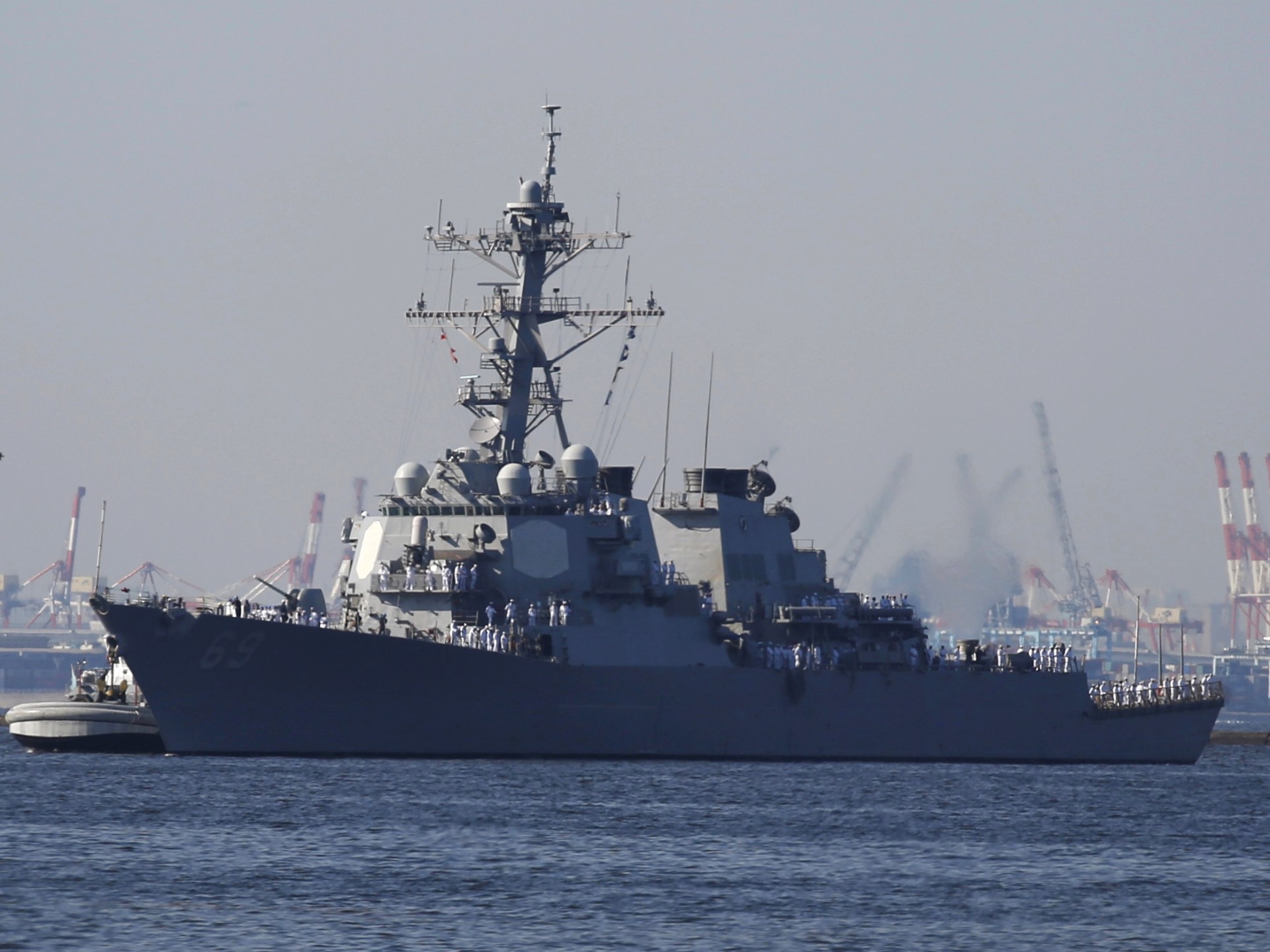Renewed dispute between the US and Chinese navy - on Friday - over the passage of a US destroyer near the Paracel Islands, which China considers part of its territory, this comes at a time when a US company said that Chinese authorities detained 5 Chinese employees of its staff in the capital, Beijing.
China's Defense Ministry said the USS Milius again on Friday penetrated Chinese territorial waters without Chinese government approval.
The ministry said in a statement that it was again forced to monitor and remove the US destroyer near the Paracel Islands in the South China Sea.
The Defense Ministry asked the U.S. side to immediately stop such "provocative actions," stressing that the Chinese military will take all necessary measures to safeguard China's sovereignty and security.
In return, the U.S. Navy asserted its freedom and navigational rights in the South China Sea.
"Large-scale illegal maritime allegations in the South China Sea pose a serious threat to freedom at sea, including freedoms of navigation, overflight, free trade, unrestricted trade, and free economic opportunities for countries bordering the South China Sea," the U.S. Navy's Seventh Fleet said in an emailed statement.
The U.S. Navy confirmed that U.S. forces operate in the South China Sea on a daily basis.
On Thursday, China's military said it had turned away the USS Milius after it illegally entered Chinese territorial waters in the South China Sea.
The U.S. Navy called the Chinese military's statement on the removal of the U.S. destroyer in the South China Sea false and false.
According to Al Jazeera's Beijing correspondent Shaima Gu E.E., the Paracel Islands, through which the U.S. destroyer transited, are a group of islands disputed between China and Vietnam in the South China Sea, and China considers them territorial waters, which the United States asserts are international waters.
Tensions between the United States and China are rising in the region, and the United States is strengthening its alliances in the Asia-Pacific region, in an attempt to counter China's influence in the South China Sea and the Taiwan Strait, while Beijing seeks to advance its territorial claims.
Arrest of employees
In a related context, Chinese authorities arrested 5 Chinese employees working in the offices of the American institution "Mintz Group" (Mintz Group) in Beijing.
Chinese authorities have suspended the five employees at the Mintz Group's Beijing office, all Chinese nationals, and shut down our operations there, a company statement said.
The statement added that the corporation hired legal counsel to deal with the authorities and support employees and their families, stressing that it had not been informed of any official legal reference regarding a case against the company, and demanded that the authorities release its employees.
Mintz Group, headquartered in the US, specializes in conducting investigations into allegations of fraud, corruption and workplace misconduct, and background checks.
The company has offices in 18 locations, including Washington, and announces on its website that employees "delve into real-world questions that matter to our clients, from presidential palaces to offshore oil platforms."
Former CIA employee
In 2017, Rundle Phillips, president of the Mintz Group in Asia, said the United States must deal with the problem of structural imbalances in trade caused by Chinese policies.
A page on the company's website titled "China must face some consequences" containing Phillips' quote appears to have been deleted, but archival copies have remained available online.
Phillips also testified before a U.S. congressional committee in 2018 about China's efforts to expand its influence abroad, according to U.S. government documents available online.
On the Mintz Group website, Phillips is described as a former CIA employee who served for 28 years, most recently as the CIA's chief representative in China.
The arrests come as relations between the United States and China are at their lowest point in decades, with the two powers at odds on everything from trade to human rights.
Tensions escalated in February after the United States shot down a Chinese balloon that Washington said was for espionage purposes, while Beijing insisted it was a weather monitor.

